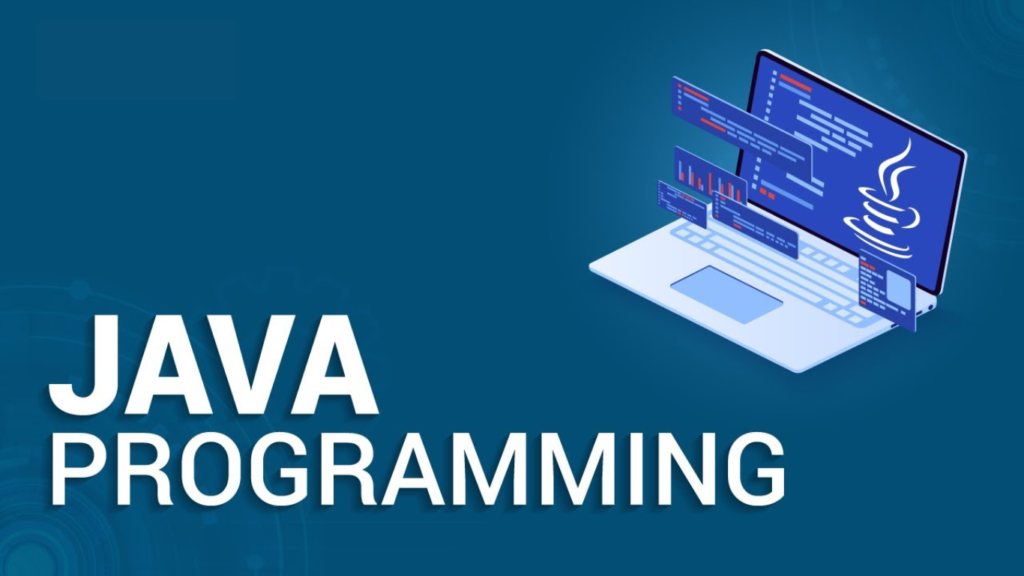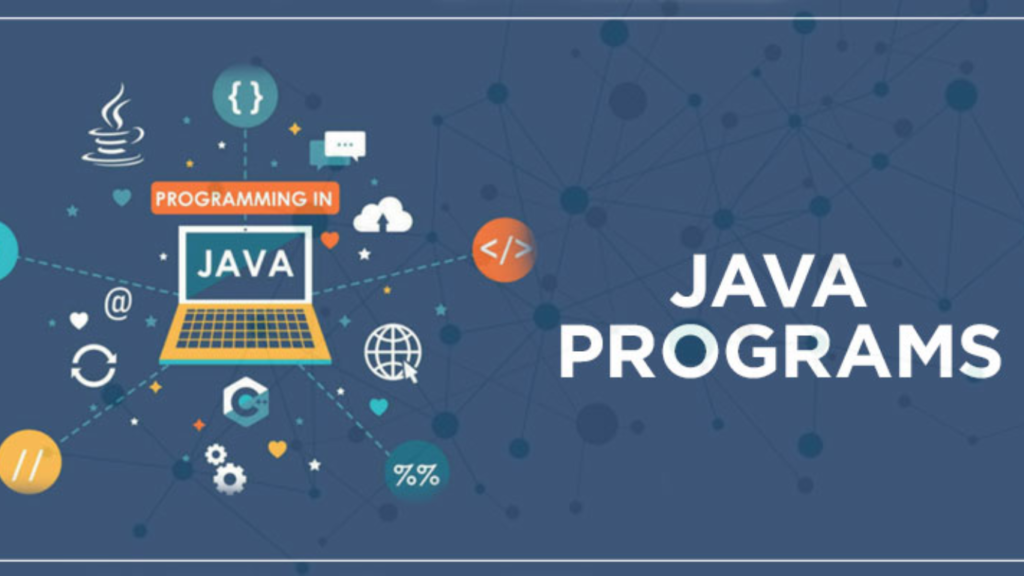This article helps beginners to start making projects using Java Programming.
10 amazing project ideas for Java Programming for beginners help to make your own projects with hands-on projects and build a career in it.
What is Java Programming for Beginners?
Java is a versatile and powerful object-oriented programming language widely used in various domains such as web development, mobile applications, enterprise software, and more.
For beginners, learning Java involves understanding the core concepts, syntax, and structure of the language, as well as practicing coding through simple projects. In the below, you get the 10 amazing project ideas for Java Programming for beginners.

10 amazing project ideas for Java Programming for beginners:-
Getting hands-on experience with Java programming can significantly enhance your understanding and proficiency. Here are ten amazing project ideas for beginners that can help you learn and practice Java programming concepts: Let’s start the projects ideas of 10 amazing project ideas for Java Programming for beginners.
- Simple Calculator:- Make a calculator to calculate numbers using basic concepts like addition, subtraction, multiplication, and division.
- Description: Create a basic calculator to calculate any difficult number easily that can perform simple arithmetic operations such as addition, subtraction, multiplication, and division.
- Key Concepts: Use basic concepts like Basic I/O, control structures, and arithmetic operations.
- Enhancements: Support more complex operations like square roots, exponents, and trigonometric functions.
- To-Do List Application:- It application is used to store lists that can be edited, corrected, deleted, and removed later according to the need.
- Description: Develop a to-do list app in your application that allows users to add, edit, delete, and mark tasks as complete.
- Key Concepts: Use basic concepts in the To-Do list for Collections (ArrayList), file I/O for saving tasks, and basic GUI using Swing or JavaFX.
- Enhancements: Change for further use and implement a priority system and due dates for tasks.
- Library Management System:- Make a system for library management to store any books
- Description: Build a system of library to manage a library, including functionalities for adding books, issuing books to users, and tracking due dates.
- Key Concepts: Use some of the key concepts like object-oriented programming (OOP), collections (ArrayList or HashMap), and file I/O.
- Enhancements: Add a search function and a GUI interface.
- Student Management System:- It is used to store all details of students of school to manage records.
- Description: Create an application for student management to manage student information, including adding, updating, deleting, and viewing student details.
- Key Concepts: Use basic concepts to manage student details like Classes and objects, collections, file I/O, and basic CRUD operations.
- Enhancements: Implement sorting and searching functionality for student records.
- Chat Application:- It is very beneficial because nowadays everyone is chatting about their work, with friends, for talking, etc.
- Description: Develop a simple and best text-based chat application for people that allows multiple users to communicate over a network.
- Key Concepts: Use some basic concepts like sockets and networking, multi-threading, and basic GUI.
- Enhancements: Add support for private messaging and file transfers.
- Bank Account Management System:- Make a bank management system to store all your informative data in a safe place
- Description: Create a system of bank management to manage bank accounts, including functionalities for creating accounts, depositing and withdrawing money, and viewing account balances.
- Key Concepts: Use some of the basic concepts like Classes and objects, inheritance, polymorphism, and exception handling.
- Enhancements: Implement a transaction history feature.
- Weather Information Application:- It is used to detect the climate conditions and to check whether the weather is good or not
- Description: Build an application of weather information that fetches and displays weather information for a given location to handle it.
- Key Concepts: Use some of the key concepts for weather detection like API integration, parsing JSON data, and basic GUI.
- Enhancements: Implement caching of weather data and support for multiple locations.
- Tic-Tac-Toe Game:- The Tic-Tac-Toe game is mainly for entertainment to play in your free time
- Description: Develop a simple two-player game like a Tic-Tac-Toe game with a graphical interface for mind fresh and to play in your free time.
- Key Concepts: Use some of the basic concepts in a Tic-Tac-Toe game like 2D arrays, game logic, and basic GUI using Swing or JavaFX.
- Enhancements: Add an AI opponent and score tracking.
- Expense Tracker:- It is mainly for businessmen to track their expenses to view their transaction
- Description: Create an application expense tracker to track personal expenses, allowing users to add, view, and categorize expenses.
- Key Concepts: Use some of the basic concepts of expense tracker like Classes and objects, collections, file I/O, and basic GUI.
- Enhancements: Implement data visualization features like charts and graphs.
- Online Quiz Application:- Create a quiz application that has four options to choose any one right option
- Description: Build an application that allows users to take quizzes on various topics, providing immediate feedback on their answers.
- Key Concepts: Use some of the basic concepts of quiz games like Collections, file I/O, GUI, and event handling.
- Enhancements: Add support for multiple quizzes, timer-based quizzes, and storing results.

Important of learning Java Programming for beginners:-
Learning Java programming is particularly important for beginners for several reasons. Java has maintained its popularity and relevance in the software development industry due to its robust features, versatility, and strong community support. Here are some key reasons why learning Java is beneficial for beginners:
- Object-Oriented Programming (OOP) Fundamentals
- Core Concept: Java is an object-oriented programming language, which means it emphasizes the use of objects and classes. This paradigm helps in organizing complex programs into manageable and modular pieces.
- Foundation: Learning Java provides a strong foundation in OOP principles such as inheritance, encapsulation, polymorphism, and abstraction. These concepts are fundamental to many modern programming languages.
- Platform Independence
- Write Once, Run Anywhere: Java’s slogan “Write Once, Run Anywhere” (WORA) refers to its platform independence. Java code runs on any device that has the Java Virtual Machine (JVM), which makes it highly versatile and portable.
- Broad Application: This feature allows beginners to develop applications that can run on various platforms without modification, broadening their understanding of cross-platform development.
- Wide Range of Applications
- Versatility: Java is used in a wide array of applications, from mobile apps (especially Android) to web applications, enterprise systems, scientific computing, and more.
- Career Opportunities: Knowledge of Java opens up numerous career opportunities as it is a preferred language for many large enterprises and tech companies.
- Strong Community and Resources
- Community Support: Java has a large and active community of developers. This means plenty of tutorials, forums, and documentation are available to help beginners learn and troubleshoot.
- Learning Materials: Abundant resources, including books, online courses, and coding boot camps, make it easier for beginners to learn Java.
- Robust and Secure
- Reliability: Java is known for its stability and reliability, which makes it a preferred choice for large-scale and critical applications.
- Security: Java has built-in security features that help in developing secure applications, which is a critical aspect of software development.
- High Demand in the Job Market
- Employability: Java developers are in high demand across various industries, from finance to tech and beyond. Learning Java can significantly enhance job prospects.
- Salary Potential: Java developers often command competitive salaries due to the language’s demand and the critical nature of the applications it is used to develop.
- Strong Development Tools
- Integrated Development Environments (IDEs): Java has some of the best IDEs available, such as IntelliJ IDEA, Eclipse, and NetBeans. These tools provide features like code completion, debugging, and testing, which are very helpful for beginners.
- Build Tools: Tools like Maven and Gradle simplify project management and build processes, teaching beginners important software development practices.
- Comprehensive Standard Library
- Rich API: Java’s extensive standard library (API) provides a wide range of functionalities, from data structures to networking, making it easier to develop complex applications.
- Learning Opportunity: Using the rich API helps beginners understand various programming constructs and how to leverage them effectively.
- Scalability
- Handling Growth: Java is well-suited for developing scalable applications that can handle increased loads and complexity. Learning Java prepares beginners for working on large, enterprise-level projects.
- Future-Proof: As applications grow, Java’s scalability ensures that the language remains relevant and capable of handling more demanding tasks.
- Solid Foundation for Learning Other Languages
- Transferable Skills: The concepts learned while programming in Java, such as OOP, data structures, and algorithms, are transferable to other programming languages like C++, C#, and Python.
- Ease of Transition: Once comfortable with Java, transitioning to other languages often becomes easier, as many share similar syntax and programming paradigms.
Short description of Java Programming:-
Learning Java programming offers numerous benefits for beginners. It provides a solid foundation in object-oriented programming, is widely used across various applications, and has strong community support and resources. Java’s robustness, security, and scalability make it a preferred choice for many large-scale and critical applications, enhancing job prospects and career growth. Additionally, the skills and concepts learned through Java are transferable to other programming languages, making it an excellent starting point for any aspiring programmer. https://bootcamp.cvn.columbia.edu/blog/java-projects-for-beginners-to-gain-skills/

Conclusion:-
These project ideas are designed to help beginners practice and master key Java programming concepts. Each project can be expanded and enhanced as you become more comfortable with the language, allowing you to learn progressively more advanced features and techniques. Working on these projects will not only build your coding skills but also provide you with a portfolio of work to showcase your abilities.

